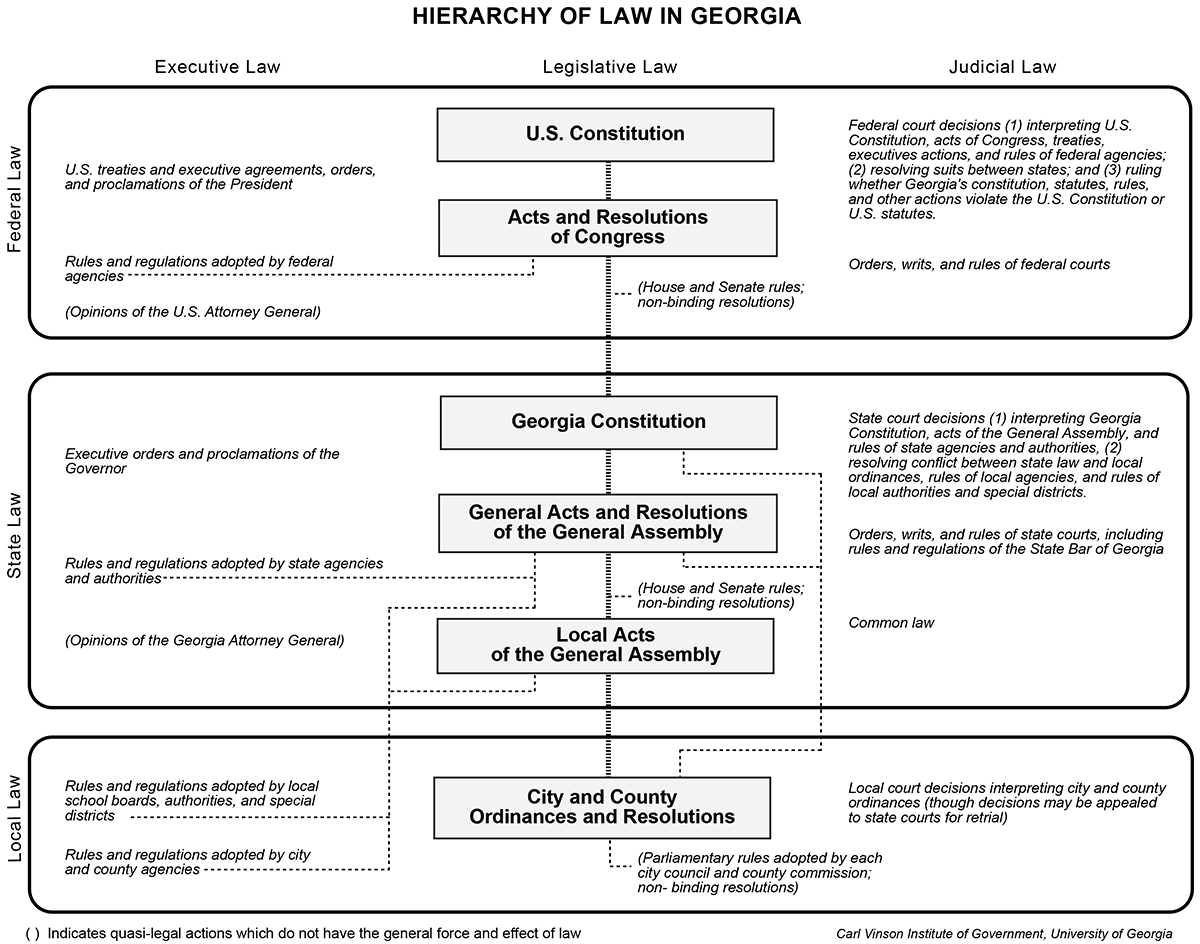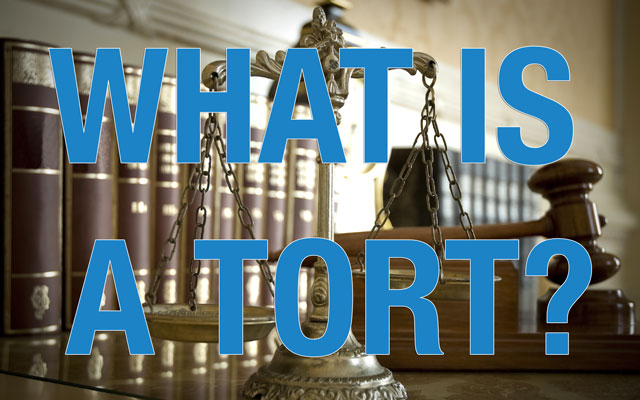Introduction to Personal Injury and the Court System – Where Laws Come From
Posted by Wetherington Law Firm | Articles
- Articles
- Artificial Intelligence
- Car Accidents
- Class Action Lawsuit
- Comparative Negligence
- Crime Victim
- Damages
- Defective Vehicles
- Disability
- Kratom Death and Injury
- Legal Marketing
- Motor Vehicle Accidents
- News/Media
- Other
- Pedestrian Accidents
- Personal Injury
- Results
- Sexual Assault
- Truck Accidents
- Uber
- Wrongful Death
Categories
The following article is the first in a series about personal injury law. This article explains where laws come from and how new laws are created. It is written for people who do not have legal training and explains these laws in simple terms. It should not be relied upon for complete accuracy or as legal advice.
Where Laws Come From
In the United States, laws are created at every level of government. Federal, state, and local governments all have the power to create law. All three levels gain power through the consent of the people. Consent initially comes from a constitution or charter. A constitution outlines the rights and responsibilities of both its citizens and government. The constitution will also authorize a legislative body — such as a congress or council — to make new laws. That legislative body will then authorize agencies to make laws within specific areas. When a law is struck down as “unconstitutional,” it means the relevant constitution did not authorize the governing body to make that law.
The Hierarchy of Power
There is a chain of command for the governments in the United States. This is called the hierarchy of power. No government can create a law that subverts or contradicts the constitution of a higher government. If a government attempts to create a law that contradicts the higher government, it will be struck down as “preempted.”
The hierarchy order is as follows:
- U.S. Constitution
- Laws (statutes) enacted by the U.S. Congress
- Rules promulgated by federal agencies
- State constitution
- Laws enacted by the state legislature
- Rules promulgated by state agencies
- City/county charters (the “constitution” for the city or county)
- Local laws and ordinances
- Rules promulgated by local agencies (planning/zoning).
This article will only focus on constitutions, statutes, and local ordinances. Here is how the hierarchy of laws for the State of Georgia:

Constitutions Create Law and are the Ultimate Authority
The United States Constitution is the supreme law of the land. No federal or state law may violate it. Federal laws (statutes), enacted by the United States Congress, must be followed by every state in the country. If a state law contradicts a federal law, the federal statute preempts the state law – which means the state will be required to abide by the federal statute. However, federal laws do not cover all areas of the law, and in those instances, state or local laws will control.
Similarly, within a state, the state constitution is the highest legal authority. State legislators may then enact state statutes, which apply to everyone within the state. In compliance with the hierarchy of laws, state statutes cannot violate the state constitution, the federal constitution, or federal law.
Along with providing for legislative, executive, and judicial functions, state constitutions prescribe various rights of citizens. These rights may be different from, and in addition to, rights granted by the US Constitution. Like statutes and judicial decisions, a constitution’s specific provisions can provide people with a “cause of action” on which to base a lawsuit.
Among the nations of the world, the United States has the oldest constitution still in use. It is difficult to amend, which is why there have only been seventeen amendments following the first ten in 1789; two-thirds of the House and Senate must pass amendments, and three-fourths of the states must approve them. This means that the “law” related to the Constitution is well-established. As a result, most of the cases we handle to do not involve questions of law related to the Constitution. Most of our cases involve statutes and regulations. Nonetheless, when you hear someone say, “this action violates the Constitution,” your first question should be, “which one?”
Statutes Create Additional Laws
The term “statute” simply refers to a law enacted by a legislative body of a government, whether federal or state. Statutes are different from case law or precedent, which is decided by courts, and regulations issued by government agencies. Federal statutes are enacted by the United States Congress. Title 28 of the United States Code is the section on “Judiciary and Judicial procedure,” and contains many important laws. An example is 28 U.S.C. § 1441, which is the law that allows a lawsuit originally filed in a state court to be removed to federal court.
State statutes are enacted by the State’s legislative body. In Georgia, the statutes are published in the Official Code of Georgia (O.C.G.A.). An example is O.C.G.A. 9-11-26, which provides the general guidelines for civil lawsuits. Most of the Georgia cases our firm handles are governed by this statute and we use it daily.
Local Communities Create Their Own Laws Called Ordinances
Every form of government in the United States has some express authority that justifies and defines its existence. As noted above, the United States Constitution is this authority for the federal government. Cities and counties have a similar document called a charter, which defines their terms of existence. The charter is the city or county’s “constitution,” and the starting point for making new laws. The authority for cities to create charters comes from the states themselves. Charters list the powers and structure of the city or county government. You can read the Charter of the City of Atlanta here.
Through their laws and constitutions, state governments give city and county governments the power to regulate matters of local concern, such as animal control, local law enforcement, local parks, and local roads. Cities and counties create ordinances to regulate these matters. An ordinance is the equivalent of a statute, passed by a city council, county council, or an equivalent body. For example, noise ordinances and leash laws are generally created by local governments.
The Court System
Legislative bodies create laws. The court system interprets the meaning of those laws. Courts can sometimes dramatically change the meaning of a law. For example, if there is a law that simply says, “don’t be mean,” and no additional information is provided, the courts must define “being mean.” Does being mean require physical violence? Merely saying something rude? Sometimes, courts will strike down a law because it is so poorly written or confusing. This rule probably deserves that treatment.
Violating a Law Can Lead to Civil Liability
The laws discussed in this article create duties for all persons covered by the law. The failure to comply with a law can result in both civil and criminal penalties. Criminal violations are prosecuted by the entity that created the law. Civil violations are prosecuted by the victims of the violation. Civil violations are generally considered torts, which is covered in our next article.
To continue this article and learn what a tort is, click here.
